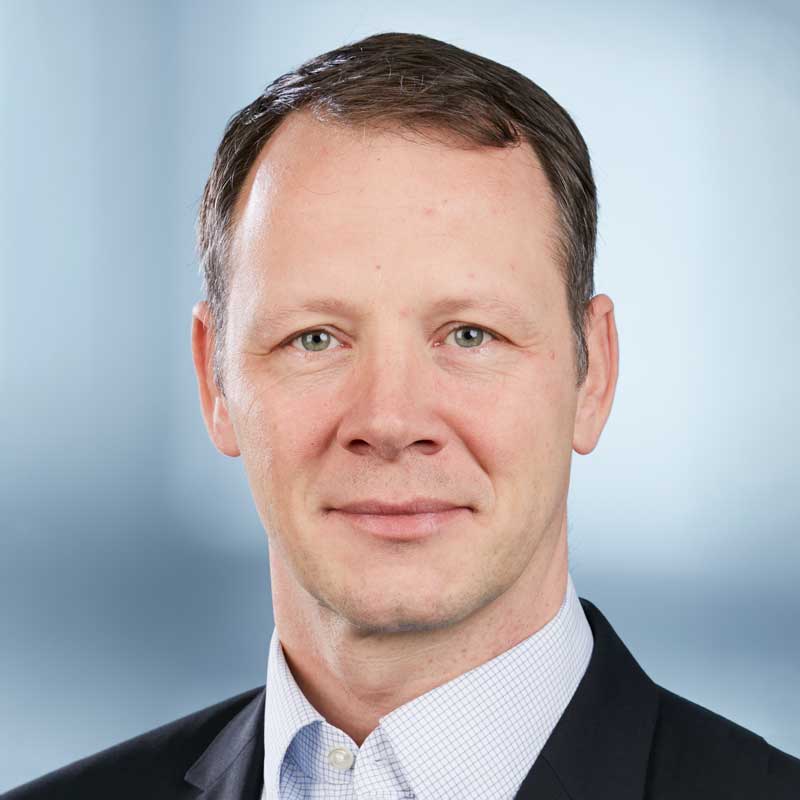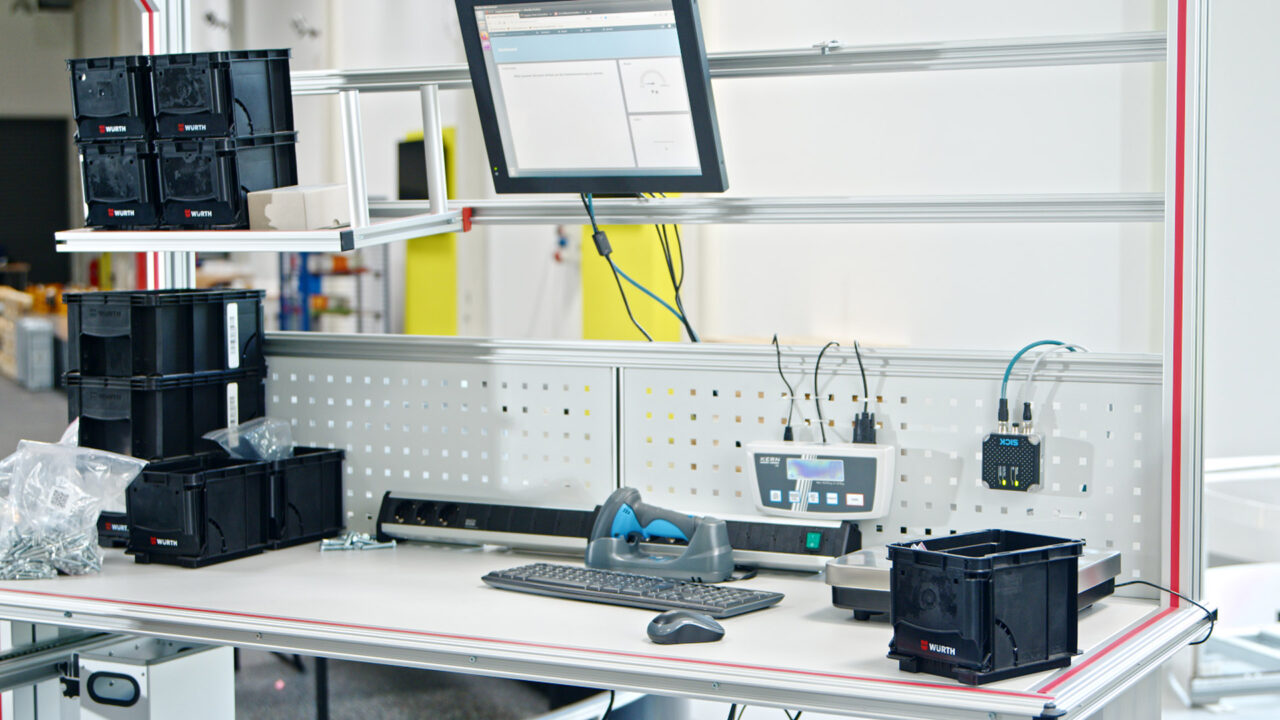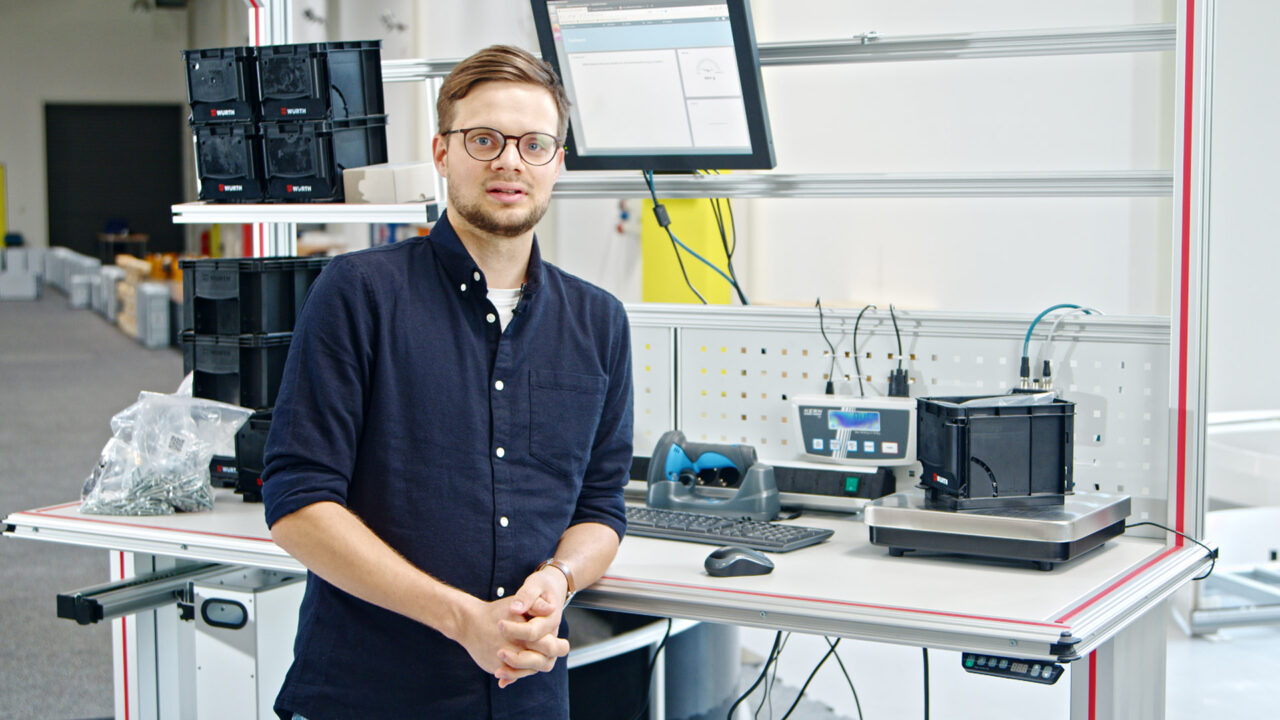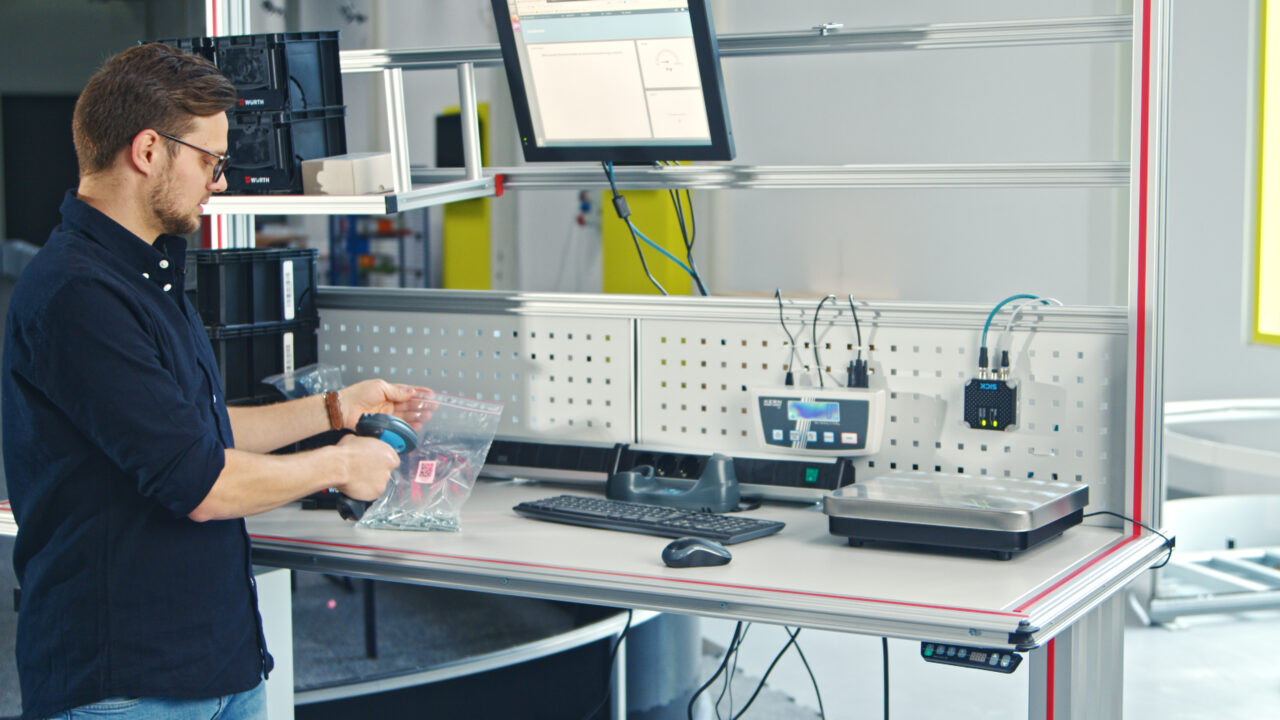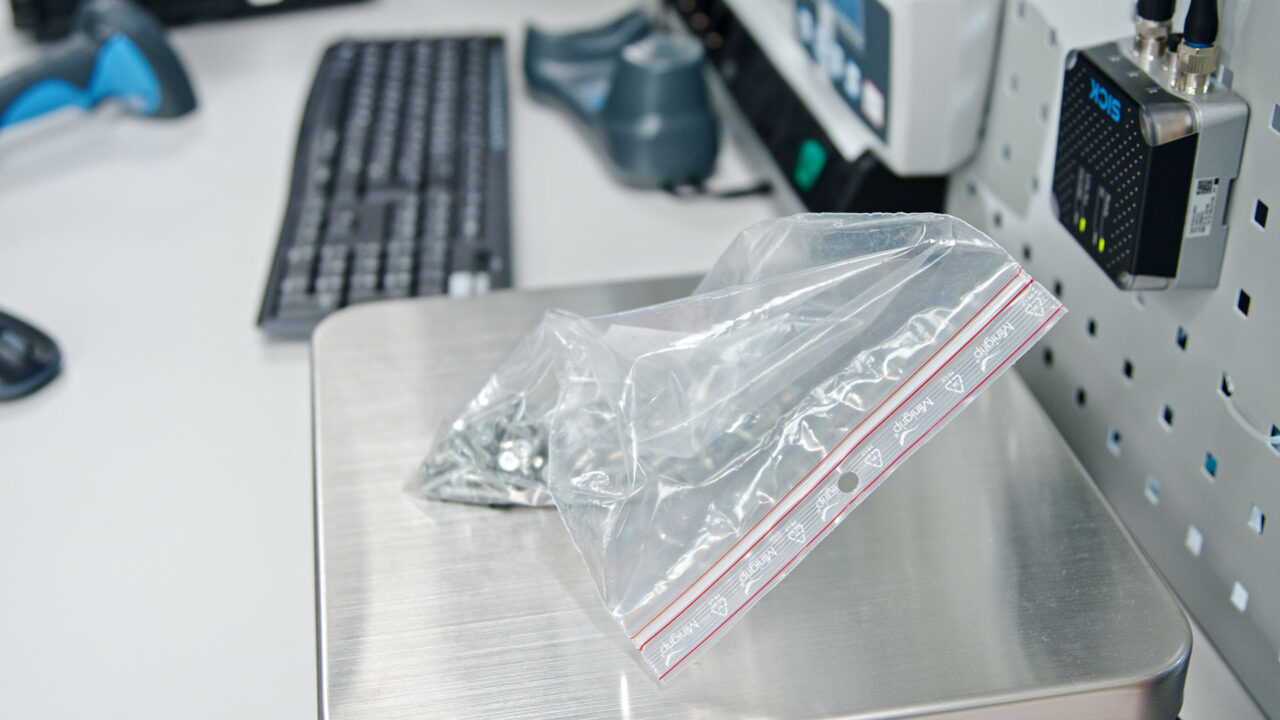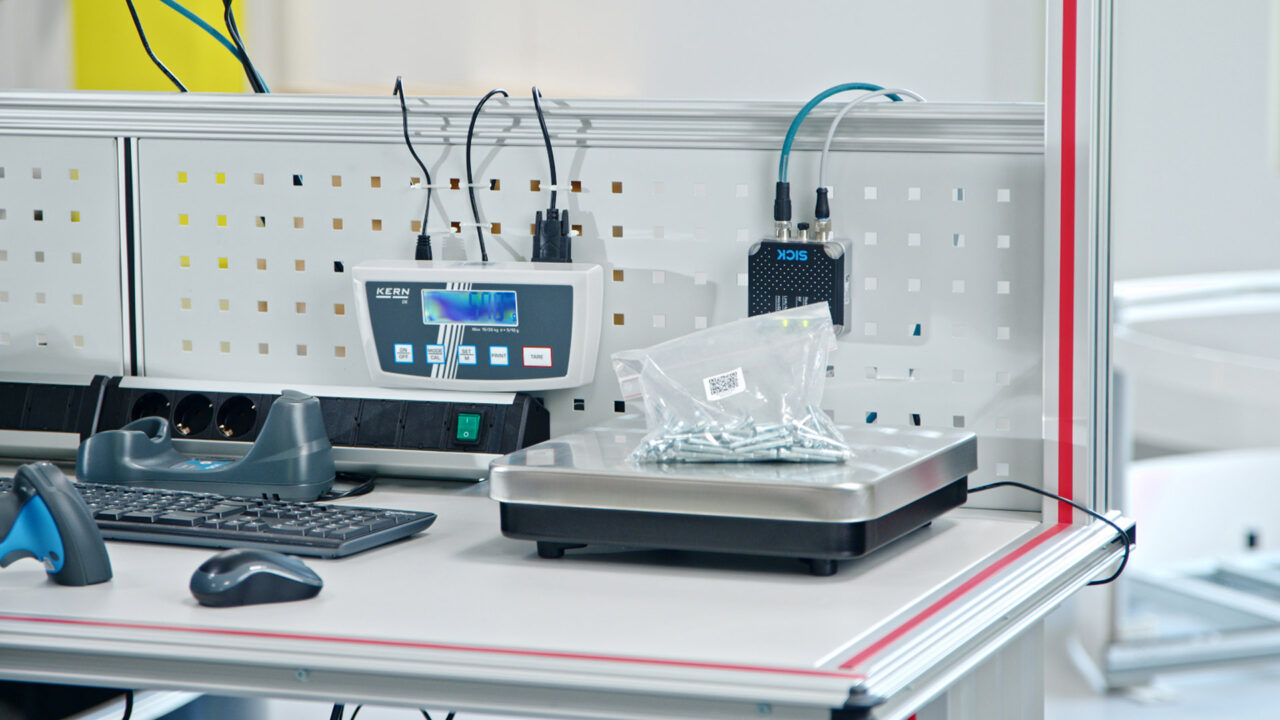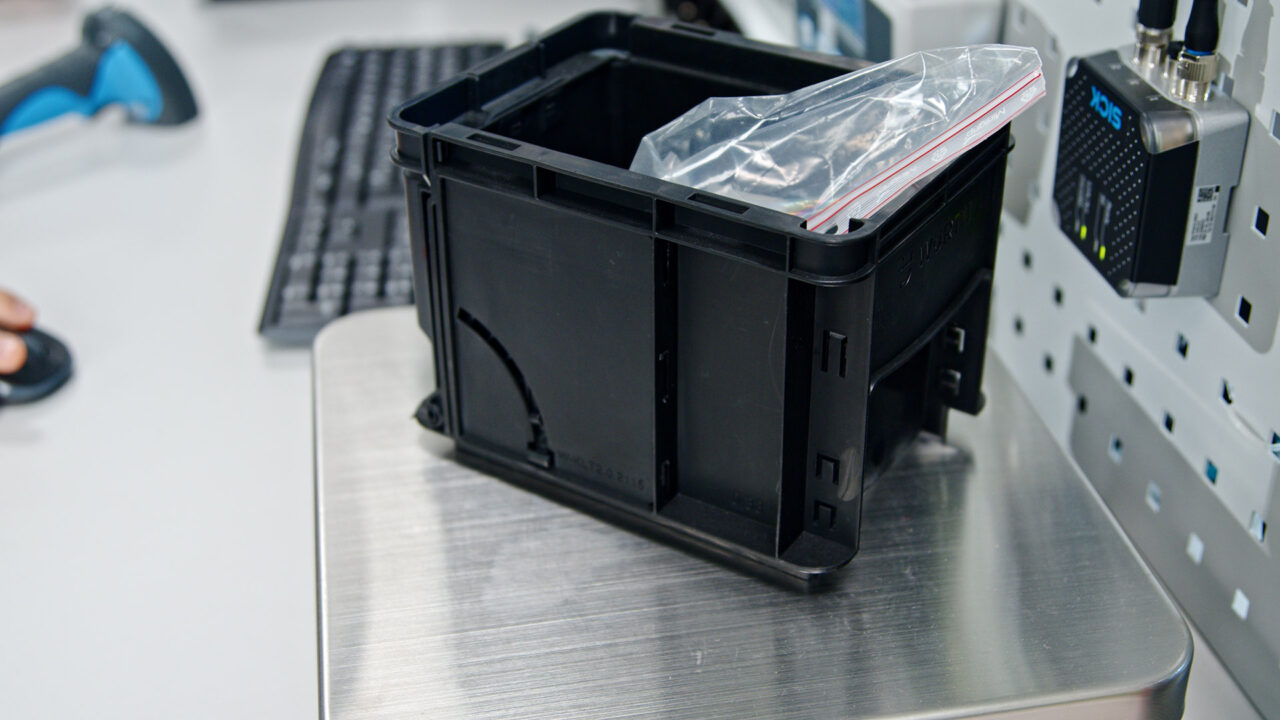In the Supply Chain Execution development project, both logistics and industrial companies are working together on the first completely networked Silicon Economy platform – a blueprint for new forms of cooperation for the partners.
Four companies, four benefit perspectives, however, all have a clear commitment to the joint development of hardware and software in the Silicon Economy: Co-creation is of utmost importance in the Supply Chain Execution project. The project partners for the use case in C-parts management include sensor manufacturer Sick, Würth Industrie Service, wholesaler for assembly and fastening technology products, Schenker AG as logistics service provider, and the Commerzbank – companies that could not be more different, yet they are all connected by a supply chain.
Clear benefit for each partner
The project partners were convinced from the outset that supply chain optimization can only work as a joint effort: »Co-creation always makes sense when each of the partners can clearly benefit from the project«, says Bernd von Rosenberger, Vice President Global Industry Center Logistics Automation, Sick AG (photo strip left). »In practice it becomes apparent that sometimes not every company can contribute the same resources simultaneously. Sometimes, one partner must go on ahead. Good management of co-creation projects pays off in this respect. We can definitely recommend the approach as a whole.«
Ronald Kerekjarto, Key Account Manager, Würth Industrie Services (2nd from left), particularly appreciates the fact that the focus is broadened through cooperation with different partners: »Here, the research perspective plays an important role: Science’s cruising altitude is sometimes at a different, perhaps higher level than that of business. However, it includes matching your own priorities to those of your partners. It is well worth it: The Silicon Economy allows us to experience different ways of working and thinking and to build new networks.« Roman Stammes, Business Expert Supply Chain Finance & Innovation, Commerzbank AG (2nd from right) agrees: »Logistics specialists, sensor manufacturers, screw manufacturers and financial service providers are all working together in the project. None of the partners knows much about the others’ businesses. While developing the services, we learn from each other and develop a common understanding of the future processes.«
From integration to business model
On this basis, each company can pursue its specific benefit perspective. For DB Schenker, the logistics service provider in this constellation, it is the »eternal subject of integration«: »Logistics service providers are generally faced with the challenge of linking up all the parties involved in a supply chain and of implementing smooth data exchange. In fact, each of the participants usually has its own system – with its own references and information,« says Marvin Lamberjohann, Head of Strategic Portfolio Management, Schenker AG (photo strip right), describing the current situation. »We are then forced to provide a comprehensive platform on which all information relevant to us from all parties involved can converge and data can be exchanged.« However, the time needed and the costs for the associated integration projects are huge. Lamberjohann adds: »But if the systems of all parties involved in a supply chain ran on the same basis and were compatible with each other, the onboarding would be child’s play. That is exactly what we are working on in the project.«
The interests of the other partners do not come off badly in the project either: For Würth Industrie Services it is about optimizing internal processes. »In C-parts management we are talking about low value articles, such as screws and nuts, which our suppliers deliver to us and we pass on to our customers. This process chain is expensive. If the logistics costs exceed the material value, customers are not prepared to pay. In this context, the idea came up to outsource certain deliveries rather than having them run through our warehouse. However, we are then faced with the problem of tracking, i.e., where are which goods and when? However, the Supply Chain Execution project now enables us to tackle this topic in a professional way«, says Ronald Kerekjarto of Würth Industrie Services.
Sick, on the other hand, directly relies on new business models. Today, sensors make a significant contribution to the digitalization of companies. »As a manufacturer of sensor systems, we can and want to offer our customers sustainable and valuable digital services on top of that«, explains Bernd von Rosenberger of Sick. The Commerzbank is also firmly focusing on the future: »With our commitment in the Supply Chain Execution development project we want to lay the foundation for offering sensor-based automatic financial transactions to our customers – a key payment method for the future. In this context, the field of C-parts management can be an example and a blueprint«, says Roman Stammes from the Commerzbank.
Open Source as catalyst
Für alle Beteiligten ist Open Source – das Entwicklungsprinzip der Silicon Economy – ein wichtiger Beschleuniger für die For all parties involved, open source – the development principle of the Silicon Economy – is a significant catalyst for the platform economy of the future: »In this way we can activate many more resources for the development and deployment of new technologies. Companies and customers worldwide can participate in the solutions and submit change proposals. In total, this gives us better and more exact results.«
